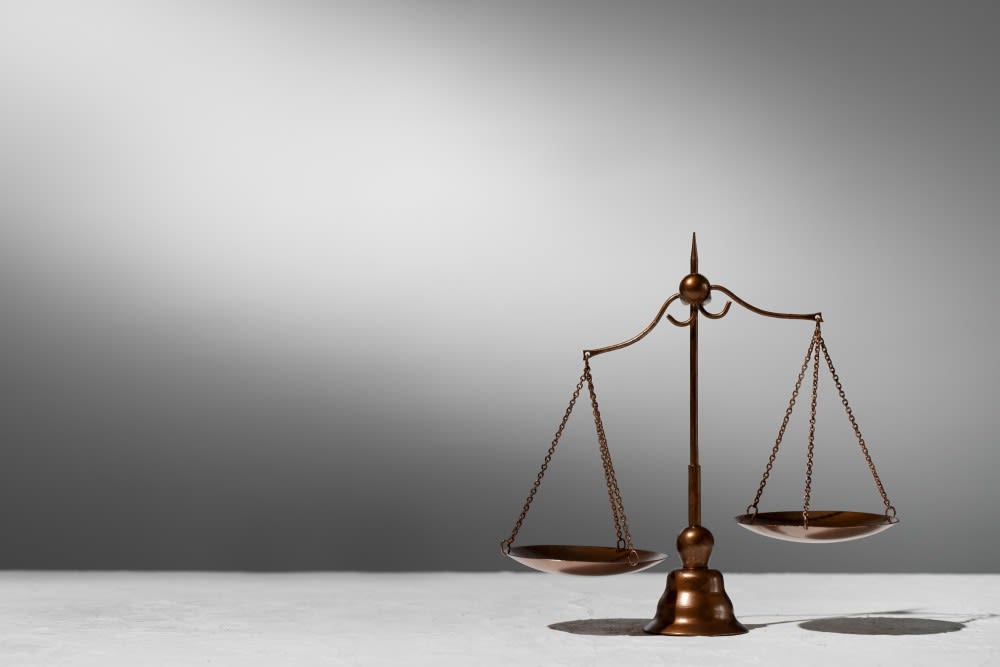
posted 2nd February 2024
Disputes are an inevitable part of human interaction, arising from various facets of life.
When conflicts escalate, individuals often find themselves at a crossroads, contemplating how to navigate the journey to resolution. Two prominent paths diverge at this juncture: mediation and litigation and each method comes with its own set of advantages and drawbacks.
In this comprehensive exploration, we'll delve into the intricacies of mediation and litigation, aiming to provide a nuanced understanding that helps readers make informed decisions about their preferred dispute resolution option.
Mediation: A Collaborative Endeavor
Definition and Process
Mediation is an alternative dispute resolution (ADR) process that involves a neutral third party, known as the mediator. This individual assists disputing parties in reaching a mutually agreeable resolution. Unlike litigation, which unfolds in a courtroom setting, mediation is a private and confidential process conducted outside of the legal system.
Pros of Mediation
1. Voluntary Participation: One of the primary strengths of mediation is its voluntary nature. Parties enter into the process willingly, fostering an environment where individuals are more likely to be invested in reaching a resolution.
2. Preservation of Relationships: Mediation places a significant emphasis on communication and understanding. As a result, relationships between parties are more likely to be preserved, making it an ideal option for disputes within families, workplaces, or communities.
3. Cost-Effectiveness: Mediation is vastly more cost-effective than litigation. The streamlined process and the absence of prolonged legal battles contribute to lower overall expenses for the parties involved.
4. Flexibility and Creativity: Mediation allows for flexible and creative solutions tailored to the specific needs of the parties. Unlike rigid legal decisions, mediated agreements can incorporate unique and personalized elements.
5. Speedy Resolutions: Mediation often leads to quicker resolutions compared to the often-protracted timelines of litigation. This efficiency is particularly advantageous in situations where a swift resolution is essential.
6. Confidentiality: The confidential nature of mediation ensures that discussions and agreements remain private. This confidentiality contributes to a more open and trusting atmosphere, facilitating genuine dialogue and understanding.
Cons of Mediation
1. No Binding Decisions: One inherent drawback of mediation is that the decisions reached are not legally binding. While parties are encouraged to adhere to the agreement, there is no formal enforcement mechanism. However there are processes whereby mediated agreements can be transposed into binding court orders.
2. Imbalance of Power: In some cases, power imbalances between the parties may affect the effectiveness of mediation. Skilled mediators must navigate these imbalances to ensure a fair and equitable process.
3. Limited Legal Guidance: Mediators facilitate communication but are not legal advisors. Parties may need to seek legal advice independently to ensure their rights and interests are adequately protected.
4. Not Applicable to All Disputes: Mediation may not be suitable for complex legal issues or cases where one party is unwilling to engage sincerely in the process.
5. Possibility of Unequal Bargaining Power: Despite the mediator's efforts, parties may have unequal bargaining power, impacting the fairness of the final agreement.
Litigation: The Legal Battlefield
Definition and Process
Litigation is the traditional legal process where disputes are resolved through the court system. Parties present their cases before a judge or jury, and legal decisions are rendered based on established laws and precedents.
Pros of Litigation
1. Legally Binding Decisions: One of the key strengths of litigation is that court decisions are legally binding. This provides a formal structure for enforcing the judgment and ensures that parties comply with the ruling.
2. Legal Guidance: Litigation involves legal professionals who guide parties through complex legal procedures. This can be reassuring for individuals who require clear legal advice and representation.
3. Compensation Awards: In cases involving financial compensation, litigation may result in substantial awards. This is particularly relevant in personal injury or business-related disputes.
4. Precedent Setting: Legal decisions in litigation contribute to the establishment of legal precedents. These precedents shape future legal interpretations and provide a framework for resolving similar disputes.
5. Discovery Process: Litigation allows for a thorough discovery process where parties can gather evidence and compel the opposing side to disclose relevant information. This comprehensive examination can strengthen legal arguments.
6. Formal Rules and Procedures: Litigation follows formal rules and procedures established by the legal system, providing a structured framework for the resolution of disputes.
Cons of Litigation
1. High Costs: Litigation is known for its high costs, encompassing lawyers’ fees, court expenses and other related charges. The financial burden can be substantial and may deter individuals from pursuing legal action.
2. Time-Consuming: Legal proceedings, especially in complex cases, can be lengthy. The extended timelines contribute to prolonged uncertainty and may hinder the timely resolution of disputes.
3. Adversarial Nature: Litigation is inherently adversarial, pitting one party against another. This adversarial environment can strain relationships, making it less suitable for disputes within ongoing personal or professional relationships.
4. Limited Control: Parties in litigation have limited control over the outcome. Decisions are ultimately in the hands of the judge or jury and the final judgment may not align with the preferences of either party.
5. Public Nature: Court proceedings are a matter of public record, exposing the details of the dispute to public scrutiny. This lack of privacy can be a significant drawback, especially in sensitive or personal matters.
6. Emotional Toll: The adversarial nature of litigation can take an emotional toll on parties involved, contributing to stress, anxiety, and a potentially negative impact on mental well-being.
7. Many parties are unable to meet the costs of instructing a solicitor or barrister to represent them and have to present their case as a litigant in person. This can be an extremely daunting prospect and many parties would find it very difficult and stressful to try and understand and follow legal procedures.
Making an Informed Decision
Factors to Consider
Choosing between mediation and litigation requires a careful consideration of various factors. Here are key considerations to help individuals make an informed decision:
1. Nature of the Dispute: The complexity and nature of the dispute play a crucial role in determining the most suitable resolution method. Mediation is often effective for interpersonal conflicts, while litigation may be necessary for complex legal matters.
2. Desired Outcome: Consider the desired outcome of the dispute. Mediation allows for more flexible and collaborative solutions, whereas litigation results in a binding legal decision.
3. Relationship Dynamics: Assess the impact of the dispute on relationships. Mediation is advantageous for preserving relationships, making it a preferred choice for family or workplace conflicts.
4. Cost and Time Constraints: Evaluate financial resources and time constraints. Mediation is generally more cost-effective and faster, making it an attractive option for those seeking efficient resolutions.
5. Willingness to Collaborate: The willingness of parties to collaborate is essential. Mediation thrives on open communication and collaboration, while litigation relies on a more adversarial approach.
6. Legal Complexity: For disputes involving intricate legal issues, litigation may be more appropriate. Seek legal advice to determine the complexity and legal implications of the case.
Case Studies: When to Choose What
Case Study 1: Family Inheritance Dispute
Mediation: The dispute involves family members contesting the distribution of inheritance. Mediation provides a confidential and collaborative environment for family members to express their concerns and work towards a mutually agreeable solution. The preservation of relationships is paramount in this scenario.
Case Study 2: Business Contract Dispute
Litigation: A business contract dispute with significant financial implications requires a legally binding decision. Litigation provides a formal legal process, allowing the parties to present their cases before a court. The legally binding judgment is crucial for enforcing the terms of the contract.
Case Study 3: Workplace Conflict
Mediation: Workplace conflicts often stem from interpersonal issues. Mediation can address these conflicts by fostering communication and understanding among colleagues. The voluntary nature of mediation allows employees to actively participate in resolving the dispute, contributing to a healthier work environment.
Case Study 4: Personal Injury Claim
Litigation: A personal injury claim involving substantial medical expenses and compensation demands a legally binding decision. Litigation provides a structured legal process for presenting evidence and seeking compensation through a court-ordered judgment.
Case Study 5: Financial settlement on divorce
Mediation: Mediation is usually the best option to reach agreement on a financial settlement after divorce. The settlement agreed can be made legally binding by way of a consent order.
Case Study 6: Child arrangements
Mediation: Mediation allows both parents to retain control over the terms of the arrangements. If the court route is taken, those decisions will be taken out of the hands of the parents.
Conclusion
In the intricate dance of dispute resolution, choosing between mediation and litigation requires a thoughtful evaluation of the circumstances. Mediation, with its emphasis on collaboration and relationship preservation, is a powerful tool for interpersonal conflicts. On the other hand, litigation provides a formal legal structure, offering binding decisions for complex legal matters.
Understanding the nuances of each method empowers individuals to make informed decisions tailored to their unique situations. Whether opting for the collaborative path of mediation or navigating the legal battlefield of litigation, the goal remains the same: achieving a fair and satisfactory resolution to disputes, enabling individuals and communities to move forward with clarity and closure.


